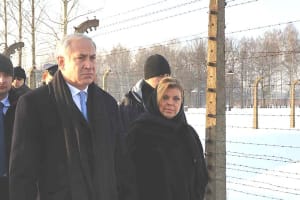Israel rejects allegations of unlawful use of white phosphorus shells against Lebanon
Washington Post report claims Israel attacked Lebanese villagers

The Israel Defense Forces officially rejected allegations made in a Washington Post report on Monday, claiming that the Israeli army unlawfully used U.S.-made white phosphorus shells.
White phosphorus (WP) is an exceedingly effective smoke producer and is used by militaries all over the world to produce thick, billowing smoke screens.
Its use is not completely banned but remains tightly regulated, as it sticks to human skin upon contact and can produce severe chemical burns, as well as respiratory damage.
“The IDF uses only legal weapons. The main smoke shells used by the IDF do not contain white phosphorus. Similar to many Western armies, the IDF also has smoke shells that contain white phosphorus, which are legal under international law,” the Israeli military stated.
The statement came after the Washington Post reported that, based on evidence produced by one of its local journalists, it was able to identify remains of U.S.-produced WP shells used in October, in Dhayra, a village in southern Lebanon close to the border.
Villagers claimed that Israel bombarded Dhayra with WP for hours, causing the injury of nine of its residents, of which at least three were hospitalized, one even for days.
In contrast, Ynet news reported that Israel had only used WP munitions against military targets, with no civilians present in the area.
“The choice to use [WP] is influenced by operational and availability considerations compared to alternatives. These shells are intended in the IDF for the purpose of obscuring, not to attack or ignite, and they are not legally defined as incendiary weapons,” the IDF statement continued.
Since the Hamas invasion and terror attack on Oct. 7, Hezbollah forces in Lebanon have carried out almost daily attacks against Israeli targets, often using anti-tank guided missiles.
These weapons have ranges of up to several kilometers and rely on optical identification of the targets, which is the main reason the IDF uses smokescreens to obscure their view and prevent Hezbollah from firing into Israel.
In its statement, the IDF further stressed that even though WP isn’t prohibited, internal IDF regulations restrict its use in built-up areas, “except in certain exceptional cases,” making them stricter than international law.
Dhayra is not densely populated or built up, open areas interspersed between homes, surrounded by farmland and orchards.
The report also mentioned that Dhayra has been repeatedly used as a staging ground against an Israeli position on the opposite hill just over the Israel-Lebanon border.
Hezbollah is known to have stationed its forces in forward positions close to the Israeli border, often using areas with dense vegetation and undergrowth to hide its missile and rocket launch positions.
“In the last two months, the State of Israel has been subjected to continuous attacks by Hezbollah and other terrorist groups in Lebanon. The IDF protects the citizens of the State of Israel from these attacks,” the IDF’s statement added.
A statement quoted in the report also indirectly confirmed that Israel primarily uses WP in open areas.
Lebanese Prime Minister Najib Mikati at the beginning of the month claimed the IDF had killed civilians with WP munitions, but added that it “produced irreversible damage to more than 5 million square meters of forests and farmland, in addition to damaging thousands of olive trees.”
When asked about the report, U.S. National Security Council Spokesman John Kirby said the U.S. is “concerned” about Israel’s alleged use of WP munitions, adding it would be “asking questions to try to learn a bit more.”
Pentagon spokesman Maj.-Gen. Pat Ryder said he could not yet verify that the munitions in question were, indeed, produced by the U.S., however, he confirmed that no WP munitions were provided to Israel during the current war between Israel and Hamas.
Israel used WP munitions in past wars but severely restricted its use after 2014. Despite some claims to the contrary, no evidence has been found of its use during the current war in the Gaza Strip.

The All Israel News Staff is a team of journalists in Israel.













